'I am forever in debt': Ukrainian soldier thankful for all that Fermoy has given him
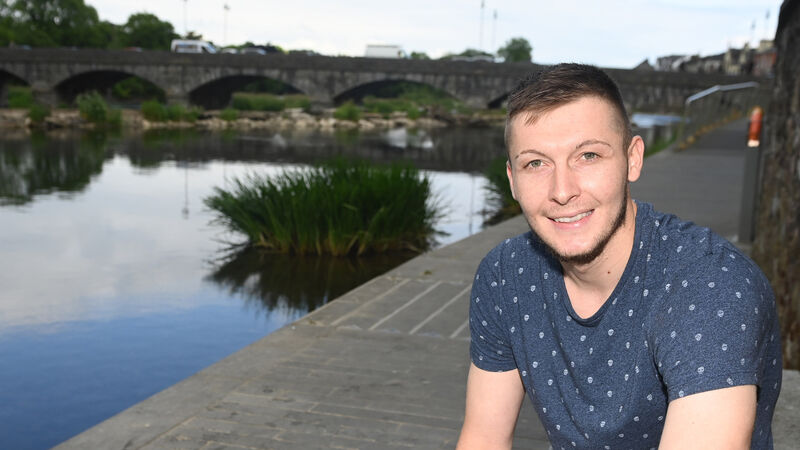
Ukrainian soldier Oleksandr Hrihorash who lost his heel in a land mine, pictured recuperating in Fermoy. Picture: Eddie O'Hare
“I am still very surprised that Ireland, on the other side of the world, saved me,” says Oleksandr Hrihorash.
In late August of last year, days after his 26th birthday, Oleksandr was fighting on the frontline in Bakhmut, in the Donetsk region of eastern Ukraine.
It was nighttime, and his unit was under heavy mortar and machine gun fire from Russian forces.
“When I went to my rifle position, I stood on a landmine, and I was blown up,” he says. “At first, I didn’t feel anything, because of the shock.”
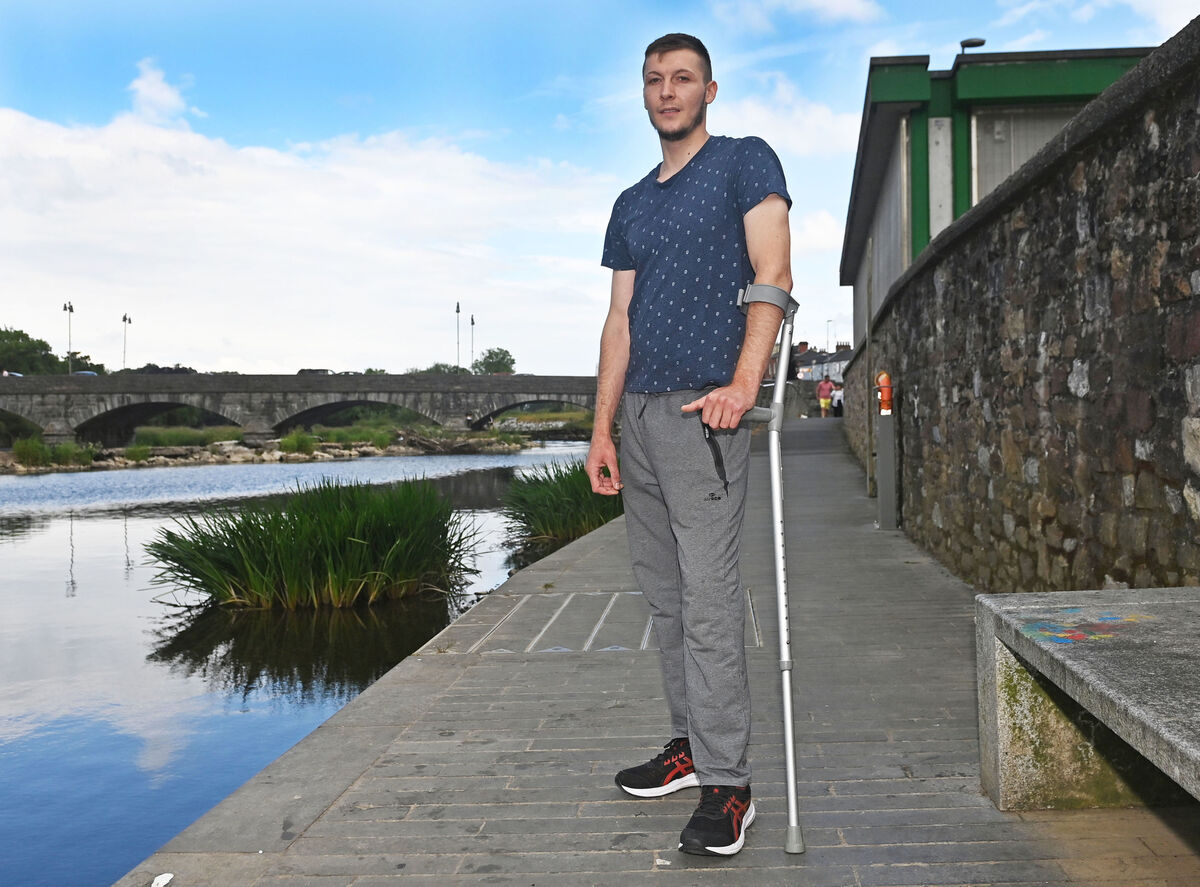
It’s a sunny afternoon in Fermoy, where Oleksandr is recuperating.
Outside TJ Goodtyme’s bar, half a world from the frontline, he tells The Echo his story through Google Translate.
He describes vividly the panic and confusion of that night the Russian bomb took his left heel, and he peppers his story with the sounds of gunfire and explosions.
“Mortar fire was coming in on top of us, there was gunfire all the time, this was a hot warzone, the Russians are firing on us, from maybe 300m away, and we’re shooting back,” he says.
“At first, my comrade Ruslan ran up and applied a tourniquet to my leg to try and stop the bleeding so that I would not bleed out, then he ran for the medics to get me out of there.
“The guys came in, under fire, and they jostle me up on a stretcher, they run, they are under fire all the way, they carry me for 40 minutes, mortars falling, gunfire all around.
“They are my heroes, they saved my life, under fire, as they get me to safety.”
Ruslan, the soldier who put a tourniquet on Oleksandr’s leg, was two decades older than Oleksandr, and the two men did not get along.
“We quarrelled constantly,” he says. “Then he saved my life. That was unexpected!”
Not three hours later, Ruslan was dead, killed outright by a Russian mortar.
Oleksandr raises his shirt to show a tattoo on his chest with Ruslan’s name and date of death.
“My friend Ruslan,” he says. “I didn’t even have time to say thank you to him.”
Before Russia began its full-scale invasion of Ukraine last February, Oleksandr, a native of Kamianets-Podilskyi in western Ukraine, was working part-time in the Czech Republic, where he was training to be a mixed martial arts fighter.
Within days, he had returned home to volunteer for the army. He believes his training helped him in the army.
“This grounded me, it gave me character,” he says.
The Russian landmine blew off Oleksandr’s heel, and when he arrived in hospital, he was told he would need a below-knee amputation.
“They gave me 30 minutes to prepare,” he says.
“I had a panic. I didn’t know what to do. If they cut off my lower leg, I’ll need a prosthesis, but then the war is over for me.”
He signed a waiver, refusing amputation.
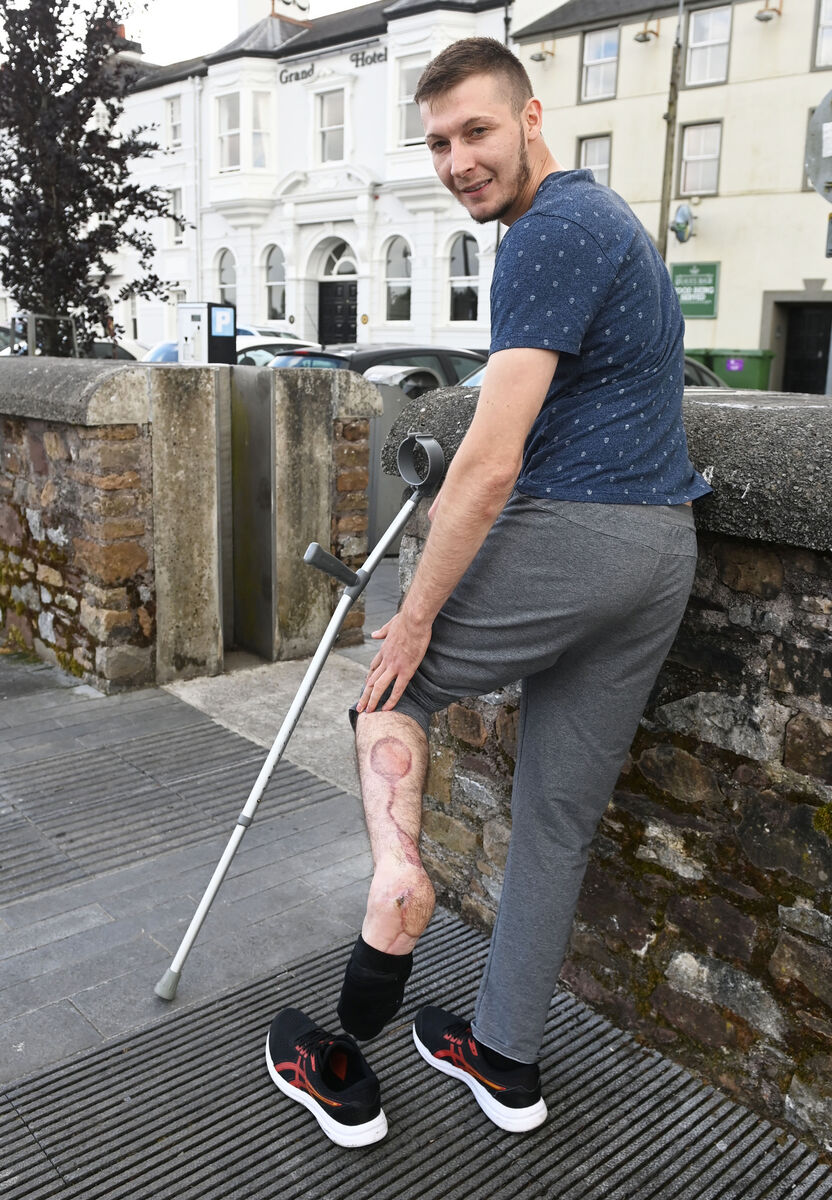
“I fought them, and I would not give up,” he says with a grim laugh. “I was transferred to another hospital, and to another hospital.”
In the third hospital, Oleksandr was told bluntly there was no chance of saving his leg. His response was: “Let’s get me for foreign treatment, so”.
However, with so many other soldiers wounded, he was facing a three-or-four-month wait for foreign treatment, all the time against a ticking clock.
“I was warned that if I am waiting for more than a month, it’s not amputation down my shin anymore, now they will have to cut off my leg above the knee.”
Every day he phoned the Ukrainian ministry of health to ask when he would get medical treatment abroad.
“Germany refused to take me, Spain refused. But Ireland did not refuse me. Ireland accepted me, and for that I am forever in debt to the Irish.
“If ever there is war in Ireland, I will take up arms for Ireland.”
At Cork University Hospital (CUH), Oleksandr again refused the offer of a below-knee amputation, and although he had suffered significant bone and tissue loss, he responded well to treatment and subsequently received plastic surgery.
After seven-and-a-half months in CUH, he has lived in Fermoy, in the old Grand Hotel, for the past six weeks as he recuperates.
There are 25 Ukrainian people living there, 10 families, with five children.
“They are good, decent people there, and I really like the administrator, Dee.
“She is a good woman who has been very kind to the Ukrainian people in Fermoy.”
Fermoy is a great town, he says. The rowing club lets him use the gym, and that has really helped his recovery.
He has nothing but praise for the doctors and nurses who treated him in CUH, and he says he also received great help from a psychologist.
Later this month, he will receive a medical examination in Cork, and will then have a better idea of his progress, but he may need another operation.
“When I am well enough, I will return home to Ukraine and I will take up arms again to defend my home,” he vows.
“I was an infantryman, but with my foot I don’t know if I could return to that.
“You have to be fast and strong to be an infantryman, so maybe I’ll go and learn some other craft to help my country as a soldier.”
He is adamant that his homeland will finish the Russian invasion once and for all.
“I am sure that Ukraine will win, because good conquers evil.
“The Russians wage war against the rules, they torture us, they murder our soldiers, while our soldiers treat the Russian soldiers we capture as prisoners.
“So many children are dead because of their missiles. They bomb civilian homes, they rape women, it’s all against the rules.
“War is war, but rules must be followed.”
When the war is over, and Ukraine is victorious, Oleksandr says, he intends to return to visit Ireland.
“I really like Irish people, you are friendly people, you all smile,” he says, before laughing.
“Who knows, maybe I will come back and marry an Irish woman.”

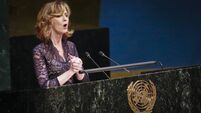
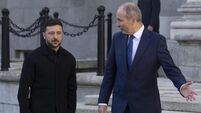

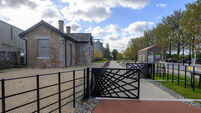

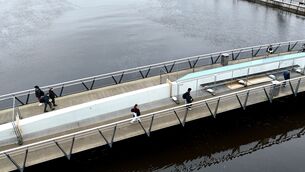



 App?
App?


